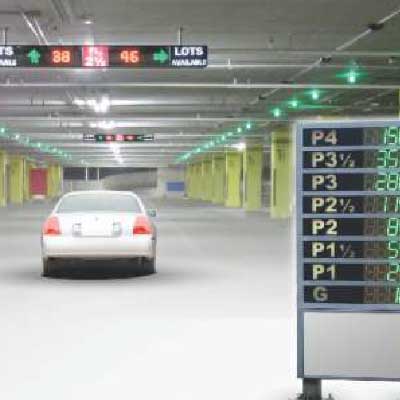Parking in urban areas has long been a source of frustration for both residents and city planners. As cities continue to grow and become more densely populated, the demand for parking spaces has escalated, leading to congestion, air pollution, and inefficient land use. To address these challenges and foster sustainable urban development, innovative parking management solutions are essential. One of the most promising developments in this domain is the integration of smart technology and data analytics into parking management systems. These systems leverage real-time data to optimize parking space allocation, reduce congestion, and improve the overall urban experience. For instance, smart parking meters can provide drivers with real-time information about available parking spaces, directing them to the nearest open spot, thus reducing traffic caused by drivers searching for parking. Furthermore, data analytics can help cities make informed decisions about parking pricing and zoning, ensuring that parking policies align with their larger urban development goals.

Another significant innovation in parking management is the utilization of multi-modal transportation hubs. These hubs act as central points for various transportation modes, including buses, subways, and bike-sharing services. By integrating parking facilities with these hubs, cities can encourage commuters to use a combination of transportation options, reducing the reliance on private vehicles and alleviating parking space shortages. Additionally, these hubs can foster urban development by promoting pedestrian-friendly environments and reducing the need for sprawling, car-centric infrastructure. Furthermore, sustainable parking management initiatives have gained traction in recent years. These initiatives prioritize eco-friendly solutions, douglas parking company such as electric vehicle EV charging stations and bicycle parking facilities. By encouraging the adoption of electric vehicles, cities can reduce emissions and combat air pollution. Additionally, the promotion of cycling as a viable mode of transportation not only reduces the demand for parking but also contributes to a healthier urban environment. Innovative technologies are also enabling the emergence of shared mobility solutions, such as car-sharing and ride-sharing services. These services provide an alternative to traditional car ownership, reducing the need for parking spaces and congestion.
Moreover, they encourage more efficient land use, as fewer parking lots and garages are required, leaving room for green spaces, housing, and commercial developments. As urban areas continue to expand and face the challenge of limited available land, optimizing land use becomes paramount for sustainable growth. Furthermore, public-private partnerships are playing a pivotal role in advancing innovative parking management. Collaborations between municipalities and private companies have led to the development of cutting-edge parking solutions, such as automated parking garages and app-based payment systems. These partnerships leverage private sector expertise and resources to enhance urban parking infrastructure, resulting in improved services and better outcomes for residents. In conclusion, innovative parking management is a critical component of sustainable urban development. By incorporating smart technology, multi-modal transportation hubs, eco-friendly initiatives, shared mobility solutions, and public-private partnerships, cities can effectively address the challenges posed by parking demand while creating more efficient, environmentally-friendly, and pedestrian-centric urban environments.
Categories: Business